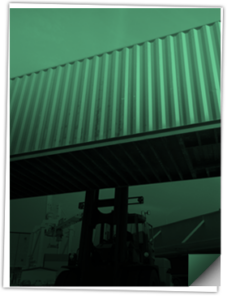Featured Headlines:
A Quest for Confidential Manifest Destinations
Important Details for Importers of Retail Baby Formula
The Shipping is Greener on the Other Side
A Quest for Confidential Manifest Destinations
- Have you ever heard of the Confidential Treatment of Vessel Manifest Data? If you’re a shipping novice, or not that well-versed in transportation jargon, then the answer is more than likely no—but we’re about to change that for you!
- Although US Customs and Border Protection (CBP) strives to maintain confidentiality of the information its furnished, it cannot guarantee that the identities of import and export parties will never be published.
- If that sounds wrong to you, then wait ‘til you hear this one: the public can legally request and obtain information from vessel manifests; and this, dear readers, is precisely where manifest confidentiality comes into play.
- To help circumvent the possibility of unwanted data shares, an importer or consignee may request confidential treatment of the name and address contained in an inward manifest, as well as the name and address of the shipper (or shippers) to such importer or consignee.
- Additionally, shippers may request confidential treatment of the shipper’s name and address contained in an outward manifest.
- For more details, review the Information on Vessel Manifests and Summary Statistical Reports.
- Interested in learning more? Find out why Shapiro believes “The Proof is in the Pudding” when it comes to confidentiality.
Important Details for Importers of Retail Baby Formula
- On October 10th, President Biden signed “The Bulk Infant Formula to Retail Shelves Act,” which temporarily suspends duties on infant formula base powder for authorized parties.
- To take advantage of the duty-free rates, importers must be authorized by the Food and Drug Administration (FDA) to import the base powder into the US, domestically manufacture it into infant formula, and then market it to US consumers.
- Importers should also note the following:
- Automatic duty-free rates are only limited to infant formula base powder of subheading 1901.90.62; and it must be exported to the US no later than November 14, 2022.
- Quota type entries will be required for all other FDA-authorized importers seeking duty-free rates under subheading 9903.19.23.
- If the quota threshold is met before December 31, 2022, duty-free rates will no longer apply.
- Click here for more details (CSMS #53599807).
The Over-the-Road Unload
- It is officially time to buy a lottery ticket! Yes, even you cynical folks who love to label most things “rackets” or “marketing ploys.” ALL US gateway seaports can now boast drayage availability within 6 days. Let us all pause and take this in…. By our count, it has been 2.25 years since this was true. The longest gestation period among mammals, the elephant’s, is about five months shorter than US drayage’s “gestation period,” folks!
- The longest gestation periods on the planet belong to a few species of shark—with some waiting three years to birth their adorable yet deadly little babies. Will Memphis, Saint Louis, and Kansas City give them a run (or swim) for their money? These 3 essential rail gateway ports still require 8-12 days lead time for drayage. Those hard-working Midwesterners better sink their sharp teeth into their 27 month-and-counting drayage messes, or we’ll be forced to send in the “jaws of life!”
- While it will be a close race by December 31st, the American Trucking Association (ATA) has indicated that the seasonally adjusted for-hire truck tonnage is up 5.5% year-to-date (YTD) despite the extreme shipping activity of 2021. Similarly, the for-hire trucking ton-mile index (TTMI) has risen 3% thus far in 2022. Sadly, the Bill Murray Popularity Index (BMPI) among for-hire truckers has dropped over 15% in the last two months and 17.5% YTD.
- Despite all this positive volume news, full-trailer-load (FTL) trucking rates have slipped over 4% in the last three months, primarily due to moderately increased supply and lower Covid-related absenteeism. There is, however, no connection whatsoever to FTL prices and Bill Murray. (Sigh.)
- When looking at trucking’s producer price indices (PPI) for 2022, we note that less-than-trailer-load (LTL) is 15.1% higher this September versus one year ago. Pundits in the industry have speculated that e-commerce plays a big part in this increase—and those same pundits have confirmed that e-commerce makes its way into every single business news segment on Earth. We’re telling you people; they proved it.
Rail Union Deadline Looms
- November 19th…! 55,000 engineers and conductors have not yet voted. The Brotherhood of Maintenance (Curds) and Way has already rejected the deal. So, watch your tuffets, shippers! Also, relax… a “tuffet” is a clump as in a bit of grass, NOT what you thought!
Fueling the Debate
- The average US price of diesel has gained over 50 cents in two weeks—with impacts from Saudi production decreases yet to hit the pumps. Our truckers are now paying $5.34 a gallon for diesel and only earning $10.34 per gallon in fuel surcharges…oh the tragedy!
- All kidding aside—well 75% of kidding aside anyway—diesel is now up over 31% compared to October 2021.
- The Biden administration is strongly considering releasing another 10 to 15 million barrels of oil from the nation’s emergency stockpile to attempt to stabilize prices, while surely offending at least half the country. What a lucky devil!
- Guess who pays at least $8-a-gallon for diesel—all of Europe. Guess who pays about $4-a-gallon—yeah, China of course! Bet you’ll never guess who pays $0.63 a gallon…seriously, we bet you won’t…well rats, yes, it is Saudi Arabia (and this is no joke!).
Air Market Touches Down
- In the last 5 weeks, global airfreight chargeable weight is down 9%, with half of that decline coming in the last 2 weeks alone! This is directly connected to the increasingly humane treatment of elephants—who are much less likely to be made to stand on little boxes wearing cute little hats while balancing bright objects on their trunks. The decline is also connected to inflation and the growing lack of consumer confidence.
- Glancing away from attempted circus humor, the year-over-year (YoY) global airfreight trends look like this: capacity is 5% up; chargeable weight is 14% down; and rates are 13% down.
- For 2022, volume is now down for all airfreight markets, including: Africa, Asia Pacific, Central/South America, Europe, Middle East/South Asia, and North America. Interestingly, Asia Pacific and the Middle East/South Asia markets are down over 20% this year on volume and rates. One extra point: this is as much a story about 2021’s shipping “offense” as it is about the “touchdown” yielding “defense” of 2021.
- Good news for the Americas…despite a 13% decline in 2022 volumes, rates are up 3% for North, Central, and South America!
- A reality check: When you look at pre-Covid September 2019, average air rates this September are still DOUBLE. The sky is not falling, but the market has lost some altitude.
- Overall passenger traffic—which increases air cargo capacity—is up to 75% of pre-pandemic levels and has been steadily rising since this spring.
- The International Air Transport Association (IATA) recently surveyed top airline executives, and 80% expected higher profitability in the next 12 months, despite global inflation, shaky consumer demand, wars, droughts, famines, political stagnation, social unrest, global warming, dried up rivers, obesity, Covid variants, extreme weather, cyber-attacks, and TikTok. Damn, passengers returning to the air is a powerful profit stimulant for airlines. Who knew?
The Shipping is Greener on the Other Side
- With carbon limitations looming, the Port of Hamburg has shifted inter-terminal cargo transfers from trucks to feeder ships. Additionally, the port announced an initiative to fully digitize Customs procedures. Nothing new was reported about Hamburg selling itself to China, but we haven’t forgotten, Hamburg. We know you have a secret, Hamburg.
- Speaking of emissions limitations, China’s largest transportation entities rank at the bottom of the list in a recent World Benchmarking Alliance (WBA) “sustainability benchmark” report that measures the value of current efforts on future pollution. Among the Chinese companies singled out for a scolding: China State Railway, China Post, and COSCO. After COSCO was made to wash the virtual blackboard and clean the virtual erasers, analysts mentioned that there was “no evidence” that COSCO is investing in low-carbon vehicles, energies, or digital solutions to reduce emissions.
- In related news, over one million international shippers have asked COSCO what they did with all that money. Some fear a gambling addiction. Keep this between us, readers.
- Among steamship lines, only Maersk is in the WBA’s global top 10 for future sustainability. Unfortunately for Maersk, they rank dead last in Shapiro’s (S) benchmark study on fairness to NVOCCs and freight forwarders. You can’t win them all, Maersk!
- Now some less bitter news: The Port of Rotterdam Authority has announced the deployment of a drone service to support cargo inspectors and shipping masters. The drones are capable of moving shipments, like refrigerated medical supplies, of up to 3 kg. Fascinatingly, drones can also be utilized to monitor water/air pollution, ship-to-ship transfers, hazardous cargo handling, on-board ship repairs, and especially employees not authorized to take that smoke break!
- Speaking of Rotterdam, the port also signed a memorandum of understanding with the port of Gothenburg to create a green corridor to support sustainable shipping between the two European giants. The two ports expect to expand their connection to a growing number of deep-sea green corridors in the future.
US Port Report
- Who has lots of dough? Charleston does! South Carolina (SC) politicians have earmarked $550 million for SC Ports to launch a near-dock rail facility and a harbor barge operation. With Savannah’s recent congestion struggles, Charleston is making a big play for future cargo.
- Who strikes fear in the hearts of southern shippers? Mobile dockworkers do! The International Longshoremen’s Association (ILA) Local 1410 has threatened labor action after a wage dispute with CSA Equipment Company, a stevedoring provider in Mobile. Today is the deadline for a deal, head’s up.
- Where is international shipping declining the fastest? The Pacific Northwest! The Northwest Seaport Alliance (NWSA)—representing Seattle and Tacoma—announced a 15.5% slide in overall volumes from August to September. So much for a peak season in Seattle; this is a “pekid season.” This said, Long Beach was down only 1% last month.
- Where do they say “recession reschmession?” In Houston! The Port of Houston witnessed a 26% increase in container volumes YoY this September; which was the second highest monthly volume in port history. The trend is supported by aggressive importing of materials for new oil industry construction, and Houston totally cheated by parking 20 vessels in their harbor. Cheating, you know like the Astros…also from Houston.
- Who is sick to death of opening every bullet with a question? We all are!
Zeroing in on Zero COVID
- Tianjin, Shanghai, and Ningbo continue to experience intermittent lockdowns as new Covid infections materialize. Today, actual port operations are running normally, but the landside realities provoke delays, added costs, and a zero patience for Zero Covid ‘tude from American shippers.
- Lockdowns hamper trucking severely and manufacturing productivity becomes a daily lottery. For example, cross-province truckers typically must demonstrate 48-hour validated nucleic acid testing results before entering a neighboring territory. Can any of us BEGIN to imagine asking American truckers to do this? Well, can you…?
- This October, Ningbo has won the prestigious “Most Disrupted Supply Chain” award. Again, the Beilun neighborhood is in lockdown, and this area is critical for cargo handling supporting Ningbo port. To date, the main disruption is a return to the “white-list” system for container truckers. Unfortunately, at least one trucker tested positive (despite being on the list), and Ningbo in-gates are being described as “parking lots.” In related news, the entire state of California objected to the name of the trucker list.
- From an air perspective, the recent lockdown of more than a million residents in Zhengzhou will be the most impactful. Again, the problem is that alternate airports are difficult to reach for local truckers, and truckers from outside Zhengzhou cannot easily reach the cargo potentially stranded by lockdown. A quagmire…a lose-lose…a classic Catch 22!
- At the Communist Party Congress this week, President Xi—who looks forward to a record third five-year term—said absolutely nothing about changing his Zero Covid policy. With new variants on the horizon, intermittent lockdowns in China may be the new normal.



